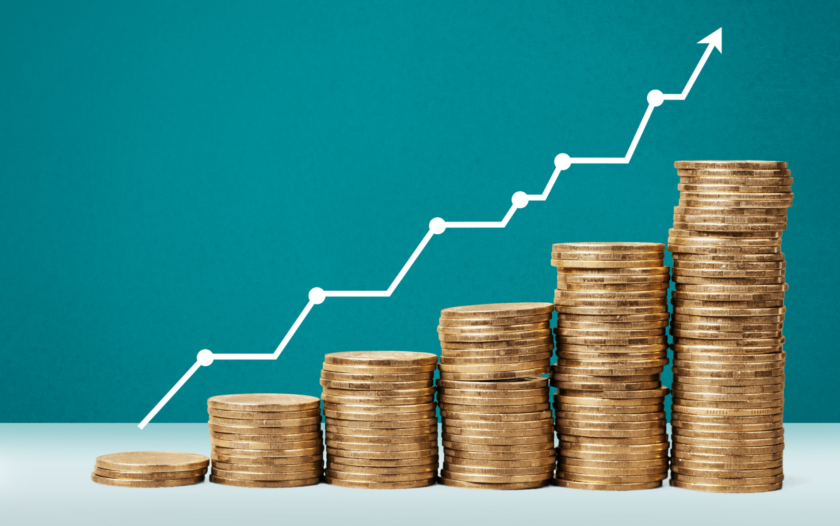If You Have Debt, Inflation Could Actually Be Good For You
About Anouare
Anouare is a seasoned writer, editor and content strategist who started her career as a lifestyle journalist before stepping into leadership roles at publications such as AskMen and Goalcast. From editorial strategy to content marketing and project-management, she has tackled various challenges in digital media and discovered her passion for mentoring others in the process. She loves a good money mindset book and believes you can create your dream lifestyle by being yourself.
Read full bio
At a Glance
If your grocery store bill has gotten higher and you keep reading headlines about inflation, you may be feeling scared about the state of things. Will your salary even be enough to cover expenses, pay down debt and save some money? Will prices just keep going up?
These concerns are valid, but in the midst of panic about inflation, one truth is often omitted: It might actually be a good thing for the average American who has debt.
How inflation can benefit you and work against the 1%
Some economists and experts argue that what is happening right now is a transfer of power between lenders and borrowers – read: between you and the banks.
First of all, wages are also steadily rising right now. Yes, the question remains whether they are rising enough to keep up with inflation. But workers currently have the upper hand on the job market, especially because of The Great Resignation, a phenomenon that has millions of professionals and workers quitting their jobs or reskilling.
Americans are demanding higher salaries and better conditions – and getting them. With prices going up, companies want to take advantage of the spike and produce goods to sell, according to MarketWatch. As a result, they need to hire workers and pay them more. So as a professional in the U.S., you may be benefiting from increased income.
At the same time, you probably also have debt. The average American has $90,460 in debt, according to CNBC. And depending on what kind of debt you have, you stand to reduce the actual value of your debt while the lenders who are raising the alarm about inflation incur losses.
If you have fixed-rate loans, you benefit from inflation the most
If you took on a fixed-rate loan before the inflationary period started, say a student loan or a mortgage, you only have to pay back what you initially agreed to. As a homeowner with a fixed-rate mortgage, there’s an extra benefit too: the value of your real estate asset is likely to increase alongside inflation, yet your interest rate won’t change.
And even if you only have credit card debt, you still can gain from inflation. When you borrowed money and paid for stuff with credit, you had more purchasing power. Now you will pay it back when it’s worth less. Simply put, you were able to get more out of the money you borrowed than the lenders will get when you pay them back.
“Faced with the prospect of the real value of their debt shrinking and their wages rising at pace with inflation, more Americans than you would think stand to gain from higher inflation rates,” writes author Morris Pearl in a Fortune article on inflation.
An alternative perspective on inflation panic
While different economists have different takes on the impact of the pandemic and other factors on inflation, whether inflation will keep rising, and what are the stakes and solutions, there is yet another perspective to keep in mind. Large organizations and Wall Street have reasons to be panicked about rising inflation. You, on the other hand, may have lost purchasing power, but gained traction on the job market, possibly raised your income, and decreased the value of your debt.









